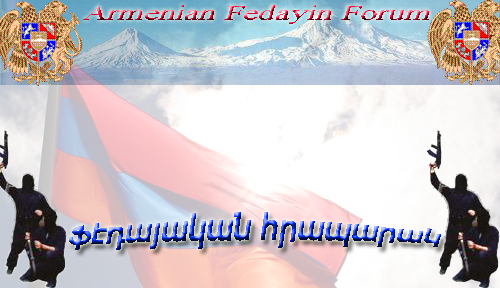Greek-history textbook stirs flame
Monday, March 26, 2007
DAMARIS KREMIDA
ISTANBUL – Turkish Daily News
The new Greek history textbook for sixth grade, introduced last fall by the Ministry of Education has sparked controversy, with critics of the new textbook claiming that it glosses over the hardships that Greeks faced under Ottoman rule, is biased towards Turks, and underestimates the role of the Orthodox Church in the battle for independence.
With Greeks celebrating the anniversary of the war of independence from the “Turks,” yesterday, and the Turkish win of 4-1 against Greece at a home football game at the Karaiskakis stadium in Athens on Saturday, there has been no absence of national malaise these days.
Greek fans showing team spirit and national pride dressed up in traditional 19th century attire and waved flags, while at the end of the game they applauded the Turkish team and booed their own. Earlier the same day fueling their nationalistic “flame,” 30 Greek neo-Nazis burned copies of the new history textbook in protest in front of the parliament building in Athens, reported Agence France-Presse. The protesters threw copies of the burnt books onto the road at the end of the traditional parade marking Independence Day in the capital.
Hercule Millas, professor of Turkish studies at the University of Athens, who has been working to re-define perceptions of Greeks and Turks since 1985, told the Turkish Daily News that for decades the two sides have made efforts to change their textbooks in an effort to reconcile. In the last 20 years they have stopped using “insulting” expressions, such as barbarian, in history textbooks.
He explained that until recently, “the writing of history books has been an effort to shape a national identity, not history. And this is what both sides do.” By portraying, in textbooks, an “other” that is threatening or owes the other side something in history, this identity is strengthened. The criticism against this book, he explained, is that the books aren't patriotic enough and don't show that the “other,” in this case Turkey, is “that bad.”
“In Greece there was a better effort” to change historical perceptions in textbooks, claimed Millas, because the writing and editing is assigned to academics and professionals. In Turkey on the other hand “they set specifications that are more strictly monitored.”
Millas attributes the controversy to the fact that “in Greece everyone has an opinion,” which is why the Church, and certain other “rightist” groups are resisting an official decision by the Ministry of Education and the Pedagogical Institute that is backed by the academic community.
Earlier this month representatives of five scientific journals submitted an appeal with the Council of State, the country's highest administrative court, to have the book classified as “unconstitutional,” while 500 academics signed a letter calling on education authorities to keep the book in schools reported Greek daily Kathimerini.
“The book refuses to pander to feelings of bigotry and animosity,” said Stefanos Pezmazoglou, professor at Panteion Universtiy in Athens, to Kathimerini. “Most of the books that preceded it more or less cultivated feelings of rivalry and animosity.” Maria Repousi, a professor at Thessaloniki's Aristotle University and head of the editorial team of the textbook, said, “The editorial team will not accept a correction from the so-called ‘nationalist lobby.'”
